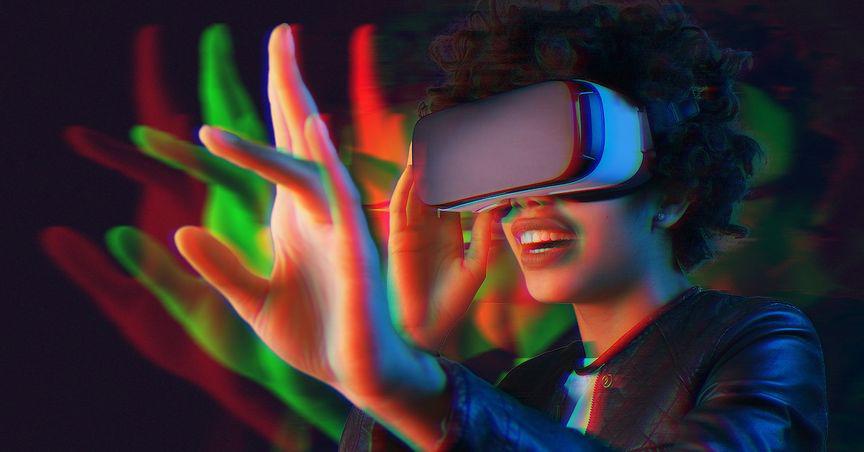Metaverse has not only scattered its wings in the gamification and the business world, but it has also made a foothold in transforming culture and artwork. Virtual reality exhibitions will allow visitors to experience locations and artefacts that would otherwise be inaccessible. These virtual worlds may accurately depict actual places, antiques, and artworks. They can also include music and weather effects, which greatly increase a virtual world's potential for immersion. Virtual simulations of historic towns and the manipulation of digital copies of priceless artefacts are only two examples of how this technology will transform how tourists experience museums and other cultural sites. Visitors also have the option of seeing an area as it was throughout many historical eras for a single encounter, allowing them to better understand the cultural legacy from all angles.
Soon, the Metaverse will become an inevitable continuation of how we interact with and learn from cultural heritage by giving people fresh opportunities to learn about the past and making it easier for them to do so. Museums all around the world have been actively experimenting with Web3 over the last two years in an effort to attract more visitors, generate more cash, and provide visitors with more engaging and unique experiences.
Examples of Metaverse incorporation in the culture
While much of the attention on cultural Web3 extensions goes to prominent art institutions, an increasing number of scientific museums are taking this road as well in order to reach new audiences, provide instructional programming, and separate from the competition.
For instance, the Museum of Science in Boston has just released a brand-new experience built on the immersive online educational platform Roblox known as "Mission: Mars."
Roblox is a prominent online gaming platform and game development system, with over 200 million monthly active users. It allows users to programme their own games or participate in games and immersive 3D experiences programmed by others.
Beneficial aspects of the Metaverse on culture
Like crypto trading bots such as BitAI App have facilitated and transformed the way of trading, the Metaverse has also shown its potential to change the culture. Let’s discover the ultimate benefits of the Metaverse in the culture.
1. Better Opportunities for Learning
The Metaverse has had a profoundly beneficial cultural influence by making information and knowledge more widely available. The Metaverse is a place where individuals can learn about and teach one another about different subjects in a manner that is both more immersive and more participatory than ever before. Users of virtual reality (VR) technology may access a wide variety of educational resources, including lectures, educational materials, collaborative projects, meetings, seminars, links with specialists, and even the ability to teach courses.
2. Distant Education
Metaverse technologies are being used by more schools as a means of providing distance education in today's increasingly digital society. As a result, students from all walks of life are now able to get good schooling without having to relocate. Universities like Stanford and Harvard have used Metaverse technology to their advantage by offering online courses to students who would not have had the chance to participate otherwise. Furthermore, instructors and students from all over the world are now able to work together more effectively on projects because of Metaverse technology.
Metaverse facilitates extraordinary possibilities for sharing knowledge among students. Forums and chat rooms in the Metaverse allow users to connect with others who share their interests or experiences on a wide range of subjects. People are more likely to learn about topics they are interested in and to ask questions in this sort of online setting than in a more traditional classroom. Therefore, individuals may learn more about complicated issues and profit from interactions with their peers all around the globe.
3. Better Interaction Among communities
Similar to conventional social networks, Metaverse technologies also provide users with a feeling of belonging and community. Communities may form in the Metaverse when people find others who share their interests and hobbies via online discussion boards and chat rooms. Those who are isolated from other people in their region owing to physical constraints might benefit greatly from participating in this form of an online community.
Avatars are digital representations of their owners that enable users to express themselves in ways they would not be able to in real life by giving them a distinct appearance, personality, and set of skills. This is helpful for those who have trouble communicating with others face-to-face for any reason. In the Metaverse, people may feel comfortable making relationships without worrying about how they appear or sound by designing an avatar that is a reflection of themselves.
Metaverse-based events, like conferences and seminars, allow laypeople to engage in discourse on a wide range of subjects and get feedback from subject-matter specialists. This facilitates communication and mutual understanding between people of different nationalities and cultural backgrounds without requiring them to be in the same physical location.
Overall, Metaverse technology gives users a stronger feeling of community and connection than ever before by linking individuals beyond geographical borders via a shared virtual world. Through its vast network of forums, chatrooms, events, conferences, etc., it facilitates learning and intercultural interchange, enriching the lives of people all over the globe.
Improved Cooperation
When it comes to teamwork and networking, the Metaverse has made a huge difference for the better. Users of Metaverse technologies have access to a variety of resources that facilitate instantaneous and frictionless collaboration with people from all over the world.
Metaverse-based video conferencing is one of the most useful tools for teamwork. This lets users connect face-to-face with colleagues or customers without needing to be physically present in the same area. Video conferencing in the Metaverse makes it seem as if individuals from all over the world are in the same room together to do business or attend a conference. Using Metaverse technology, organisations can save money on travel expenditures without sacrificing productivity by bringing remote workers together in record time.
Business Networking
Opportunities for business networking in the Metaverse are second to none. Metaverse forums and chat rooms give users new means of engaging with peers and possible companions who have similar interests or experiences. These online communities allow people to connect with one another despite physical distance or time restrictions, which may have previously prevented them from doing so. Metaverse events, such as conferences and seminars, can provide a great venue for professionals from all over the globe to network with one another and develop valuable professional relationships.
By reducing physical barriers and bringing people together in a common virtual realm, Metaverse technologies have paved the way for novel forms of international cooperation and networking. It has enabled enterprises of all sizes to rapidly convene teams spread across multiple continents for projects or meetings without requiring a physical presence, therefore saving time and money and increasing productivity. It has also made it feasible for people in diverse fields to connect with one another online and build productive networks where they may share resources, brainstorm new ideas, and forge connections that would not have existed before.
Conclusion
In conclusion, Metaverse technologies have had significant cultural consequences via the development of novel approaches to collaborative endeavours, social networking, and knowledge acquisition. Metaverse technology has many potential benefits that could lead to a better world, such as expanded access to education and knowledge sharing, enhanced collaboration and networking opportunities, and an increase in privacy and security concerns. We must be aware of the risks involved in order to fully profit from the opportunities that Metaverses provide for connectedness without jeopardising our security.




